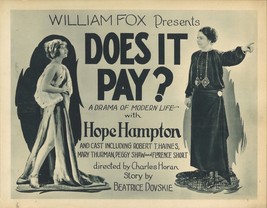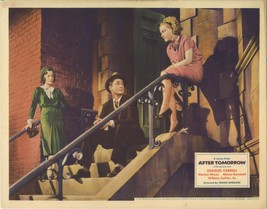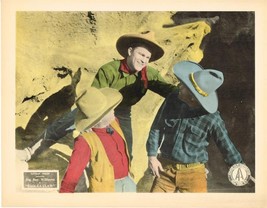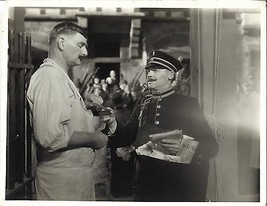DOES IT PAY? (1923) Silent Film Title Lobby and 50 similar items
DOES IT PAY? (1923) Silent Film Title Lobby Card Hope Hampton & Florence Short
$195.00
View full item details »
Shipping options
Offer policy
OBO - Seller accepts offers on this item.
Details
Return policy
Refunds available: See booth/item description for details
Details
Purchase protection
Payment options
PayPal accepted
PayPal Credit accepted
Venmo accepted
PayPal, MasterCard, Visa, Discover, and American Express accepted
Maestro accepted
Amazon Pay accepted
Nuvei accepted
View full item details »
Shipping options
Offer policy
OBO - Seller accepts offers on this item.
Details
Return policy
Refunds available: See booth/item description for details
Details
Purchase protection
Payment options
PayPal accepted
PayPal Credit accepted
Venmo accepted
PayPal, MasterCard, Visa, Discover, and American Express accepted
Maestro accepted
Amazon Pay accepted
Nuvei accepted
Item traits
| Category: | |
|---|---|
| Quantity Available: |
Only one in stock, order soon |
| Condition: |
--not specified |
| Country/Region of Manufacture: |
United States |
| Original/Reproduction: |
Original |
| ACTORS: |
Hope Hampton, Florence Short |
| FILM TITLE: |
Does It Pay? |
| GENRE: |
Silent Film Melodrama |
| STUDIO: |
Fox Film Corporation |
| ITEM: |
Vintage Original 11x14 U.S. Title Lobby Card |
| YEAR: |
1923 |
| LOCATION: |
SFLCB1 |
| DIRECTOR: |
Charles Horan |
| ITEM NUMBER: |
LC-DOESITPAY-TC |
| Modified Item: |
No |
Listing details
| Seller policies: | |
|---|---|
| Shipping discount: |
No combined shipping offered |
| Posted for sale: |
More than a week ago |
| Item number: |
503692024 |
Item description
Vintage original 11x14 in. U.S. title lobby card from the silent film melodrama DOES IT PAY?, released in 1923 by the Fox Film Corp. and directed by Charles Horan. John Weston (Robert T. Haines) is lured away from his wife (Florence Short) and children by Doris Clark (Hope Hampton), a
youthful adventuress and employee in the Weston household. Weston divorces his
wife and marries Miss Clark. One evening, he suffers a nervous breakdown when he
finds his bride in her boudoir embracing her music teacher, François Chavelle (Roland Bottomley).
Weston loses his memory and is taken to the first Mrs. Weston, who, with her
daughter, welcomes him and promises to restore his health.
Billed as "A Drama of Modern Life," the image features a large full-length shot of the beautiful Hope Hampton with a look of redemption on her face while at the same time revealing her long bare leg and bare right shoulder as the "wronged woman" (Florence Short) looks at her angrily while pointing towards the exit. it is unrestored and in very fine- condition with a tiny bit of wear on the tip of each top corner; a 0.25 in. horizontal tear on the center of the right border; a 1/8 in. horizontal tear in the bottom fifth of the right border; a 1 in. and 0.5 in. diagonal crease on the bottom right corner with some light surface dirt; a 1.5 in. horizontal crease on the bottom border near the left corner with a 1 in. horizontal crease to the left of it; a 0.5 in. diagonal crease with light signs of wear on the bottom left corner; and a very light 2.25 in. vertical crease in the bottom of the left border. The printing is fresh and vibrant and this card looks even nicer in person.
Hope
Hampton (Mae Elizabeth Hampton) (February 19, 1897 - January 23, 1982) was
an American silent motion picture actress and producer who was noted for her
seemingly effortless incarnation of siren and flapper types during the 1920's. She also at one time was an aspiring opera singer. Texas-born,
Philadelphia-bred beauty-contest winner Hampton was discovered by U.S. silent
cinema pioneer Jules Brulatour while working as an extra for
director Maurice Tourneur. She made her screen debut in 1920's A
Modern Salome and went on to feature prominently in several
Brulatour-financed films. Her last starring role was in The Road to Reno (1938), with Randolph
Scott and Glenda Farrell. In 1923, Hampton wed her manager Brulatour and they remained married until his death in 1946. After retiring from motion
pictures at the dawn of sound, Hampton turned to opera and made her debut with
the Philadelphia Opera in Manon.
The idea that she ever toured with the Metropolitan Opera is belied
by a look at the company's online archives. She returned to the screen in The Road to Reno (1938), a film directed
by her husband. Later she was known as The Duchess of Park Avenue, a
leading member of New York's social set. In 1978, she was crowned Queen of the Beaux
Arts Ball over which she presided with King Arthur Tracy.
|
Why are we showing these items?
Booth
SilentCinema's Booth |

|

-
Refine your browsing experience
We can show you more items that are exactly like the original item, or we can show you items that are similar in spirit. By default we show you a mix.
This item has been added to your cart
 DOES IT PAY? (1923) Silent Film Title Lobby Card Hope Hampton & Florence Short added to cart.
Only one available in stock
DOES IT PAY? (1923) Silent Film Title Lobby Card Hope Hampton & Florence Short added to cart.
Only one available in stock
View Cart or continue shopping.
 Please wait while we finish adding this item to your cart.
Please wait while we finish adding this item to your cart.
Get an item reminder
We'll email you a link to your item now and follow up with a single reminder (if you'd like one). That's it! No spam, no hassle.
Already have an account?
Log in and add this item to your wish list.
























































